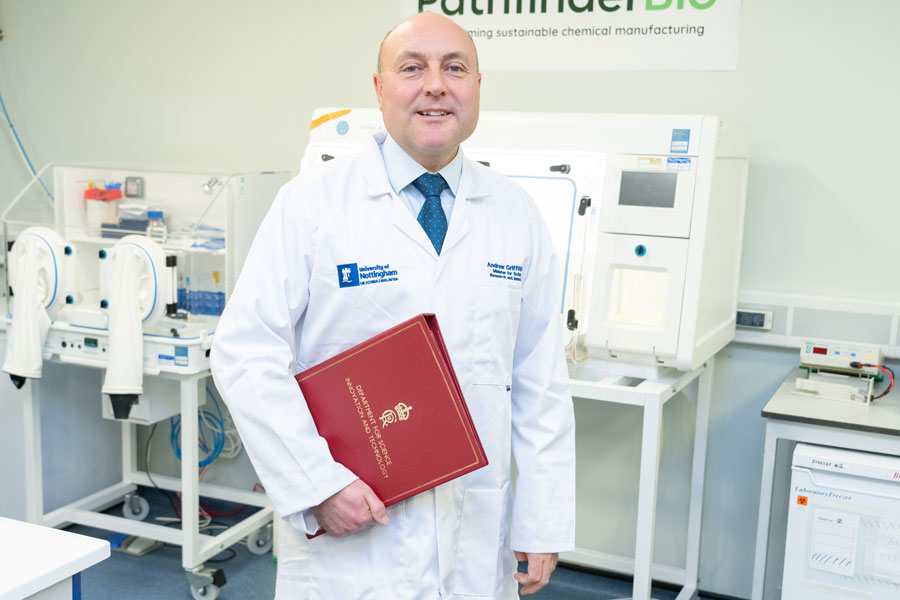Two research projects at the University of Nottingham have been awarded £3.2m to develop new drug delivery systems for a range of diseases.
The research projects are part of 22 Mission Award projects awarded £30 million by UK Research and Innovation (UKRI) to transform solutions in areas such as biotherapeutic, vaccine, textile and food production. The awards aim to create an expansion of engineering biology disciplines and communities, building on existing UK strengths and emerging opportunities.
A multi-disciplinary team from the Schools of Chemistry, Pharmacy, Engineering and Life Sciences at the University of Nottingham, in collaboration with Medicines Discovery Catapult, have been awarded £1.8m to deliver anticancer agents in a more targeted way to tumour cells, reducing side effects and healthy cell death.
The researchers are aiming to develop a new targeted drug delivery system based on the human protein called Apoferritin. The natural role of this self-assembling protein nanocage is to store and transport iron in a safe form inside the body as 'ferritin'. The hollow structure of the protein nanocages once the iron has been removed provides a cavity to accommodate drug molecules allowing them to bedelivered directly to the cancer cells via specific surface receptors in the version engineered in the labs at the University of Nottingham.
Protein nanocages hold enormous promise for providing targeted 'trojan horse' drug treatments with reduced side effects and we are delighted to be able to accelerate this work with the Mission funding. The apoferritin nanocages can also deliver drugs that are poorly soluble, and we hope to build on our previous work that has shown that some drugs such as the brain cancer treatment temozolomide when encapsulated in the apoferritin cages can re-sensitize cancer cells that have become resistant to it when delivered alone. This may extend the effective treatment period of these drugs.
Medicines Discovery Catapult (MDC), based at Alderley Park, Cheshire, is an independent, not-for-profit innovation centre for drug discovery and part of the Catapult Network established by Innovate UK. Its vision is to reshape drug discovery for patient benefit by transforming great UK science into better treatments through partnership. MDC will be providing pre-clinical imaging expertise in order to facilitate the progress of apoferritin along the drug discovery pipeline.
We are looking forward to working with the University of Nottingham to provide our multi-disciplinary pre-clinical expertise on this project, which builds on a previous successful partnership between our labs. Exploring innovative approaches to drug discovery is vital for the success of our sector, and it is made possible through collaborations like this.
Another Mission Award has been given to Professors Snow Stolnik and Cameron Alexander from the School of Pharmacy at the University of Nottingham who are part of a collaboration with King's College London Institute of Pharmaceutical Sciences, as the lead partner, and Aston University. The £1.4 million UKRI funding is awarded to engineer vesicles found in milk into advanced therapies. The researchers will engineer nanometre-scale particles from milk into advanced, yet inexpensive and accessible therapies based on nucleic acids.
This is an exciting project to explore new therapies for a number of diseases. The Nottingham team will contribute to the project with their expertise in drug delivery systems design and advanced characterisation.
Engineering biology has enormous potential to address global challenges, drive economic growth, and increase national security, resilience and preparedness. These mission hubs and awards projects will play a key role in achieving the goals of government's national vision for engineering biology that was announced in December 2023.

Science, Research and Innovation Minister, Andrew Griffith visited the University of Nottingham to announce the Awards and said: "Engineering biology has the power to transform our health and environment, from developing life-saving medicines to protecting our environment and food supply and beyond."






